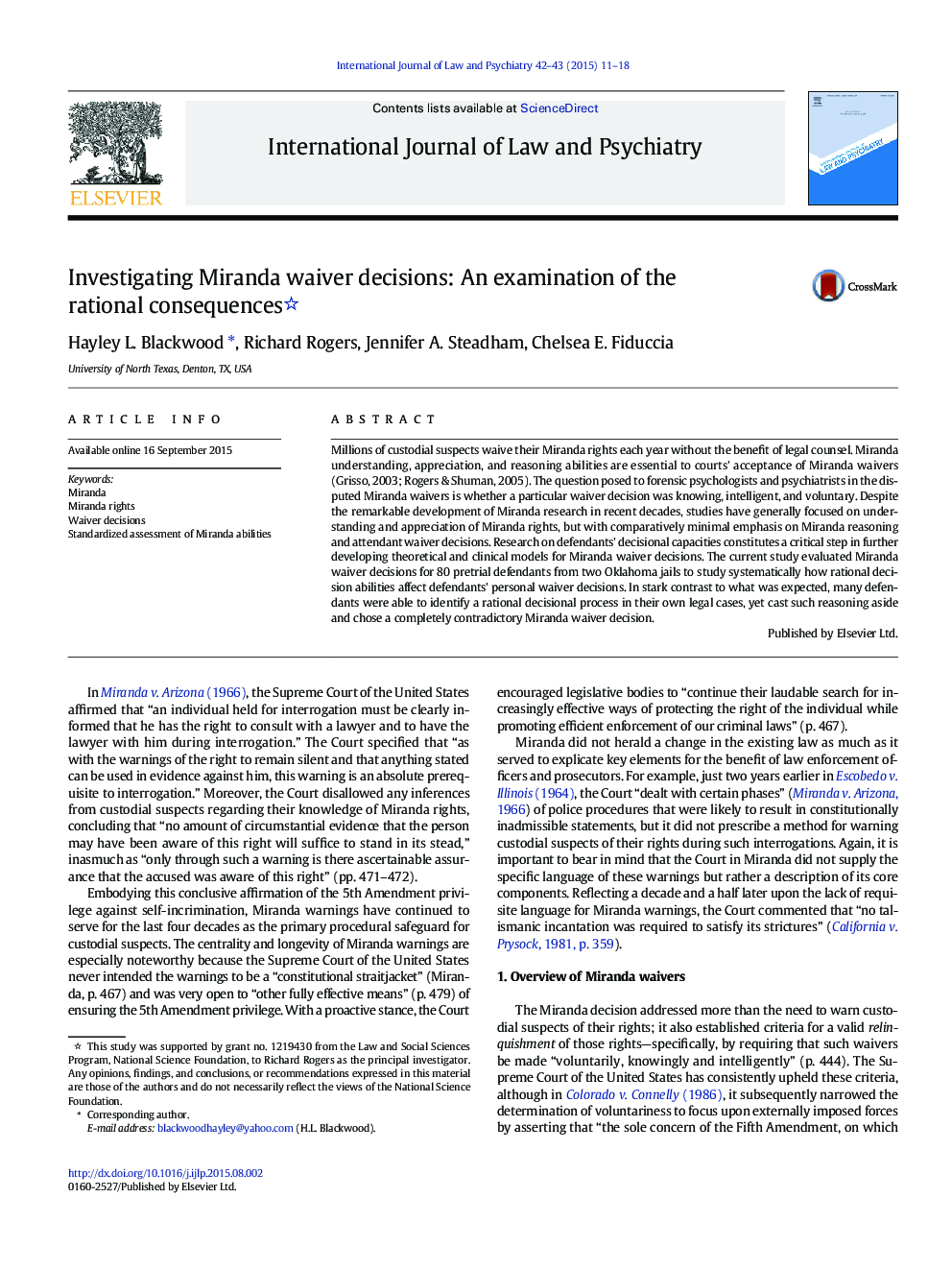| کد مقاله | کد نشریه | سال انتشار | مقاله انگلیسی | نسخه تمام متن |
|---|---|---|---|---|
| 100705 | 1422279 | 2015 | 8 صفحه PDF | دانلود رایگان |
Millions of custodial suspects waive their Miranda rights each year without the benefit of legal counsel. Miranda understanding, appreciation, and reasoning abilities are essential to courts' acceptance of Miranda waivers (Grisso, 2003; Rogers & Shuman, 2005). The question posed to forensic psychologists and psychiatrists in the disputed Miranda waivers is whether a particular waiver decision was knowing, intelligent, and voluntary. Despite the remarkable development of Miranda research in recent decades, studies have generally focused on understanding and appreciation of Miranda rights, but with comparatively minimal emphasis on Miranda reasoning and attendant waiver decisions. Research on defendants' decisional capacities constitutes a critical step in further developing theoretical and clinical models for Miranda waiver decisions. The current study evaluated Miranda waiver decisions for 80 pretrial defendants from two Oklahoma jails to study systematically how rational decision abilities affect defendants' personal waiver decisions. In stark contrast to what was expected, many defendants were able to identify a rational decisional process in their own legal cases, yet cast such reasoning aside and chose a completely contradictory Miranda waiver decision.
Journal: International Journal of Law and Psychiatry - Volumes 42–43, September–December 2015, Pages 11–18
